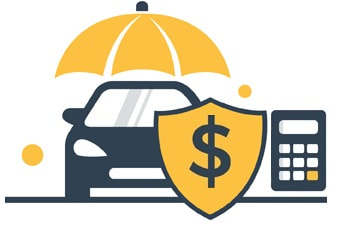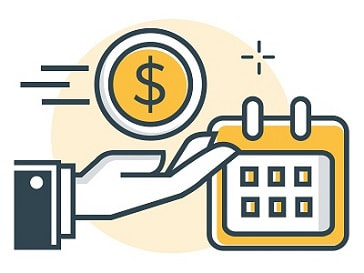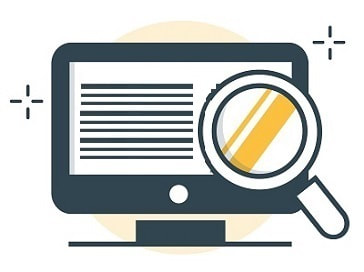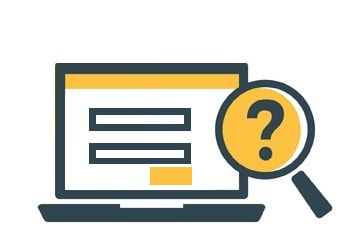Asset Finance Explained & Lending Options
Our guide explains asset finance and its ten different types (lines of credit, HP, finance leases, and more), lenders and brokers, pros and cons, and FAQs.
Updated 3 June 2024
Summary:
Important: Whether you’re looking to expand, streamline, or simply manage your assets more effectively, asset finance is not without its risks. Maintaining cashflow to fund the ongoing payments is essential - asset finance is as demanding financially as it is essential to a business.
Our guide explains the different types of asset finance available, providing insights into how each option can support specific business strategies and objectives. We cover:
- Running a business is expensive; many constantly need to innovate to stay competitive.
- Asset finance is a popular way to access essential assets without taking on debt or facing a working capital squeeze.
- Asset finance is a versatile lending option that can be used for various business needs. Whether you're looking to upgrade your technology, expand your vehicle fleet, or acquire specialised machinery, asset finance offers the flexibility to spread these costs over time, making it a practical choice for businesses of all sizes.
- Asset finance eases cash flow and enables businesses to leverage high-value assets to their full potential. It also helps to optimise the value of what you already own (by using them as collateral for lines of credit).
- Whatever your business needs, the spectrum of asset finance is broad and adaptable. It is designed to meet the unique needs of businesses across various industries, from sole traders to large corporations.
Important: Whether you’re looking to expand, streamline, or simply manage your assets more effectively, asset finance is not without its risks. Maintaining cashflow to fund the ongoing payments is essential - asset finance is as demanding financially as it is essential to a business.
Our guide explains the different types of asset finance available, providing insights into how each option can support specific business strategies and objectives. We cover:
MoneyHub Founder Christopher Walsh shares his views on Asset Finance and what it entails for a typical business:"Asset finance is flexible and helps achieve growth, investment, and tech advances without a sudden strain on working capital. With the right asset finance solution, a business can acquire essential assets while maintaining a healthy cash flow.
Asset finance is not limited to traditional sectors like construction or transportation - it's used by tens of thousands of New Zealand's SMEs to help them maintain a competitive edge and upgrade or replace assets in line with evolving business needs. Businesses that understand asset finance use it to distribute the cost of essential and expensive assets over their usable life. It's all about avoiding large upfront investments and better using working capital to fund growth areas. Few businesses get trapped by asset finance, given that it arguably helps expand and stay competitive rather than load debt onto a balance sheet. It's also flexible—lenders often work with businesses to structure repayments that align with their revenue cycles, so repayments become part of the standard overheads. This flexibility helps businesses maintain financial stability and plan for the future more effectively. Whatever your needs, don't rush in - there are many options, and an asset finance broker is a strong starting point if you're unsure what type of asset financing you need". |
Christopher Walsh
MoneyHub Founder |
What is Asset Finance?
- Asset finance is lending that manages the cost of assets like vehicles, buildings, and equipment. It's ideal when your business requires these assets but prefers not to pay the full amount upfront. Asset finance eases this financial burden by distributing the cost over a fixed period, usually between 12 months and seven years. Regular repayments, which include fees and interest, are made over this term.
- Throughout the repayment period, your business enjoys full use of the asset. This gives your business the flexibility to bring on new technology or expand a fleet without the need to divert working capital to fund the upfront cost. Asset finance can also help your business borrow against the value of assets you already own, offering liquidity through asset refinance.
What is an "asset"?
In business lending terms, an asset refers to any item of value, but it must be tangible for asset finance. This includes buildings, vehicles, and equipment used to support daily business operations. Assets can also serve as security for loans or to fulfil financial obligations.
Interest Rates on Asset Finance
Interest rates for asset finance typically range from around 8% to 20% p.a., depending on what you're financing and the lender's risk. Generally, heavier vehicles or machinery often attract higher interest rates.
Most lenders will offer the following:
- Borrow amounts from $10,000 to over $250,000
- Finance terms between 1 and 7 years
- Both asset loan and lease options, covering 10+ asset finance options
- The choice of asset finance with or without a balloon payment.
- Potential to claim GST and other tax deductions on the financed asset.
Asset Finance eligibility:
Eligibility criteria can differ between lenders, but common requirements include:
- New Zealand citizenship or permanent residency.
- An active NZBN (New Zealand Business Number).
- A minimum of six to 12 months of trading history.
- GST registration for your business.
- Bank statements and other necessary documents to prove eligibility.
- Sufficient monthly turnover to support the repayments.
- The asset to be financed should be used primarily (at least 51% of the time) for business purposes.
Understanding the 10 Different Types of Asset Finance (and Who Offers Them)
Asset finance encompasses diverse financing solutions, extending well beyond the simple concept of a loan to purchase an asset. Asset finance comes in many forms, tailored to meet specific business needs and scenarios. We explain the various types of asset finance, each uniquely structured to support different business strategies and objectives.
Who can I borrow from?
Asset Finance encompasses a network of specialised lenders and brokers, each dedicated to working with you to secure the most suitable finance solution for your needs. Both lenders and brokers bring expertise in assessing your specific requirements and looking at suitable options to find the right solution. Lenders include:
Brokers include:
Who can I borrow from?
Asset Finance encompasses a network of specialised lenders and brokers, each dedicated to working with you to secure the most suitable finance solution for your needs. Both lenders and brokers bring expertise in assessing your specific requirements and looking at suitable options to find the right solution. Lenders include:
Brokers include:
Hire Purchase (HP)
|
Finance Lease
|
Equipment Leasing
|
Operating Lease
|
Asset RefinanceAsset refinance comes in two forms:
|
Revolving Credit Facilities (and Lines of Credit)
|
Contract Hire (Vehicle Asset Finance)
|
Term Loans
|
Seasonal Loans
|
Project Finance
|
Asset Finance Pros and Cons
Pros:
Cons:
- Minimised upfront costs: Asset finance often requires little to no upfront payment, making it easier to acquire expensive equipment and stay ahead with the latest technology. Asset finance avoids the risk of reducing working capital and frees up capital in general.
- Spread costs over time: By borrowing to buy an asset, a business can spread the cost of an asset across its useful life.
- Cash flow management: Using asset finance simplifies budgeting and supports cash flow, enabling businesses to grow without heavy debt burdens. Too often, debts drag down a company's profitability and threaten its existence as a going concern - asset finance helps avoid that. Some asset finance lenders allow interest-only terms over Christmas (when many businesses close) to help with cashflow constraints.
- The asset serves as the collateral: Typically, the financed asset itself serves as the collateral, which avoids needing personal guarantees (which is often the case with business loans).
- Cheaper interest rates and fees than business lending: Asset finance can be more cost-effective than other financing methods, such as a vehicle loan or business loan, due to its specific lending nature. Fixed or floating interest rates for loan terms are normal, which gives borrowers a choice.
Cons:
- Repossession risk: Failing to keep up with payments will lead to the provider repossessing the asset.
- Long-term commitment: Most asset financing agreements extend beyond one year, so the costs must be budgeted.
- Usage limitations: Certain types of assets, like vehicles, may come with usage limits, such as annual mileage, and exceeding these can incur extra costs, given the asset financer is taking a risk and wants to protect their security.
- Interest costs add up over time: While spreading the cost of an asset over time helps manage cash flow, it also means paying interest, which can add up. Our calculator shows you what this can cost and why it's important to calculate the total cost of finance, including interest, to assess affordability.
- Dependence on the asset: The value and ongoing use of the asset being financed are crucial. If the asset depreciates quickly or becomes obsolete due to technological advancements, it might lose value faster than the loan is paid off, leading to a potential financial imbalance.
- Restrictions on asset disposal or alteration: Because there is usually security on the asset, you won't be able to sell or significantly alter the financed asset until the asset finance is paid off. That's not an issue for most businesses, but it can be inflexible for some.
Frequently Asked Questions
Is my business eligible for asset finance?
Eligibility for asset finance typically depends on your business's ability to meet its financial obligations. Whether you're a sole trader, in a partnership, running a limited company, or even starting a new business, there are asset finance options and lenders suited for a variety of needs.
To know what you can get and how much it will cost requires you to contact speciality lenders and brokers and make an application.
To know what you can get and how much it will cost requires you to contact speciality lenders and brokers and make an application.
What are the key benefits of asset finance for my business?
Asset finance can significantly enhance your business's operational capacity without the immediate financial burden of outright purchases. It helps maintain healthy cash flow, offers potential tax advantages and allows your business to access the latest technology or equipment without a significant upfront investment. This flexibility helps businesses that want to be competitive and adapt to market changes but are not dragged down by debt.
How does asset finance compare to traditional business loans?
Unlike traditional loans, which might require a security and/or a personal guarantee from a director, asset finance is specifically linked to the acquisition of an asset. As the loan is secured against the asset, this can mean getting favourable terms, such as lower interest rates and longer repayment periods. In most cases, asset finance is less risky for lenders and borrowers.
Interest rates on asset finance will vary depending on factors like the type of asset, the term of the loan, and your business's credit history. Additionally, before signing any contract, you'll need to understand the fees, which can include origination fees or penalties for early repayment, to calculate the total cost of the finance accurately.
Interest rates on asset finance will vary depending on factors like the type of asset, the term of the loan, and your business's credit history. Additionally, before signing any contract, you'll need to understand the fees, which can include origination fees or penalties for early repayment, to calculate the total cost of the finance accurately.
What types of assets can I finance through this method?
Asset finance covers a wide range of items, including but not limited to vehicles, machinery, office equipment, and technology. In most cases, asset finance can be used for any tangible asset that can be used in your business operations.
How does asset finance improve my business's cash flow?
By spreading the cost of an expensive asset over its useful life, asset finance can prevent large capital expenditures that strain cash flow. For example, rather than sinking $70,000 of working capital into new machinery, asset finance lets the business better manage its budgets, maintain liquidity, and allocate resources to other critical areas like development and marketing while making monthly repayments.
What documents and information are required for asset finance approval?
Each lender has specific needs, but generally, you'll need to provide detailed business financial statements and information about the asset(s) you wish to finance. This might include purchase orders or quotes. Lenders may also require information about your business's credit history.
Can I finance used or pre-owned equipment?
Yes, financing used or pre-owned equipment is often possible and can be a cost-effective way for businesses to acquire assets. The financing terms might differ from new equipment, often depending on the asset's age, condition, and residual value.
How does asset depreciation impact my finance agreement?
Depreciation doesn't directly affect your finance agreement, as your payments are fixed. However, you'll be able to tax deduct the depreciation costs per the IRD's guidelines.
What flexibility do I have in terms of repayment schedules?
Repayment schedules can often be tailored to match your business's cash flow. This could mean seasonal payment plans, balloon payments at the end of the term, or structured payment increases. Flexibility in repayments allows businesses to manage their finances more effectively without putting undue strain on their resources.
Do I have to provide additional security?
Usually, the asset being financed serves as the security for the loan. However, in some cases, you might be able to use other fixed assets you own as additional security. This can be particularly helpful if you want to finance a larger amount or if the primary asset doesn't fully cover the loan value.
When will I find out if my application has been approved?
Generally, for loans up to $200,000, asset financers can give you a decision within 48 hours. Sometimes, it can be as quick as four or five hours.
What happens if I default under the agreement?
Meeting your obligations under the finance agreement, including regular payments, is crucial. If you default, the lender may have a security interest in the financed asset, and if they do, they are entitled to repossess and sell the asset. You will still be liable for the remaining amount if the sale doesn't cover your outstanding debt. However, if you're facing difficulties in payment, it's important to contact the lender early, who will work to find a solution.
Asset Finance Glossary
Our glossary helps make sense of the details of asset finance with typical examples.
- Asset Finance: A type of lending that allows businesses to obtain assets like vehicles and machinery without paying the full cost upfront. For example, a landscaping company uses asset finance to acquire a new lawn mower, paying in monthly instalments instead of a lump sum.
- Hire Purchase (HP): HP is an agreement in which a business pays for an asset in instalments and owns it after the final payment. For example, a bakery buys an industrial oven on hire purchase, gaining ownership after paying off the agreed-upon instalments over two years.
- Finance Lease: A lease where a business rents an asset for a major part of its useful life and has the option to own, return, or sell the asset at the end of the lease term. For example, a trucking company leases a fleet of trucks for five years, after which it can choose to purchase the trucks or return them.
- Operating Lease: A lease agreement for using an asset without the intention to own it, typically for a shorter period than the asset's full economic life. For example, an event management company opts for an operating lease for high-end audio equipment for a series of events over three months.
- Asset Refinance: Using already-owned assets as collateral to secure funding, often used to free up working capital. For example, a construction firm uses its owned excavators as collateral to secure a loan for expanding its operations.
- Revolving Credit Facility: A flexible line of credit allowing businesses to draw funds, repay, and redraw as needed, up to an agreed limit. For example, a retail store has a revolving credit facility to purchase inventory as needed throughout the year, repaying portions each month.
- Contract Hire: A type of lease specifically for vehicles, where maintenance and disposal are often included at the end of the term. For example, a pharmaceutical company uses contract hire for its sales team's cars, including maintenance and end-of-term return.
- Term Loan: A loan provided to a business for a specific period with agreed repayment terms, often used for long-term asset acquisition. For example, a tech startup takes a term loan to set up its new office space, repaying the loan over five years.
- Seasonal Loan: A loan tailored to businesses with fluctuating income due to seasonal variations, with repayments structured accordingly. For example, a ski resort opts for a seasonal loan with reduced repayments during the summer when income is lower.
- Project Finance: Long-term financing based on the projected cash flows of a specific project rather than a business's operations. For example, an energy company secures project finance for developing a new wind farm, with loan repayments tied to the project's earnings.
Asset Finance Repayment Calculator
- Our calculator provides a clear view of what your repayments could look like on a weekly, fortnightly, or monthly basis for an asset finance loan. While we've set the initial loan amount to $20,000 as a starting point, you have complete flexibility to adjust this figure.
- You can enter a suitable interest rate that reflects your actual or expected terms. This way, you get a tailored understanding of your potential financial commitment.
Asset Finance Repayment Calculator
Asset Finance Amount
Asset Finance Payment
Asset Finance Amount
Total Interest
Total Cost
-
Asset Finance Amount
-
Total Interest
-
Total Cost
-
Disclaimer:
- Please note that our Asset Finance Repayment Calculator is designed to provide estimated repayment figures based on the inputs provided. Actual loan terms, including interest rates and repayment amounts, will vary depending on your creditworthiness, market conditions, the financed asset, and lender policies.
- This calculator is intended as a guide only and is not financial advice.
Related guides
Business Lending Essentials:
Cash Flow Essentials:
Business Lending Essentials:
- Business Borrowing Options
- Small Business Loans
- Finance Leases
- Operating Leases
- Operating Leases vs Finance Leases
- Prospa Review
- Bizcap Review
Cash Flow Essentials:

















